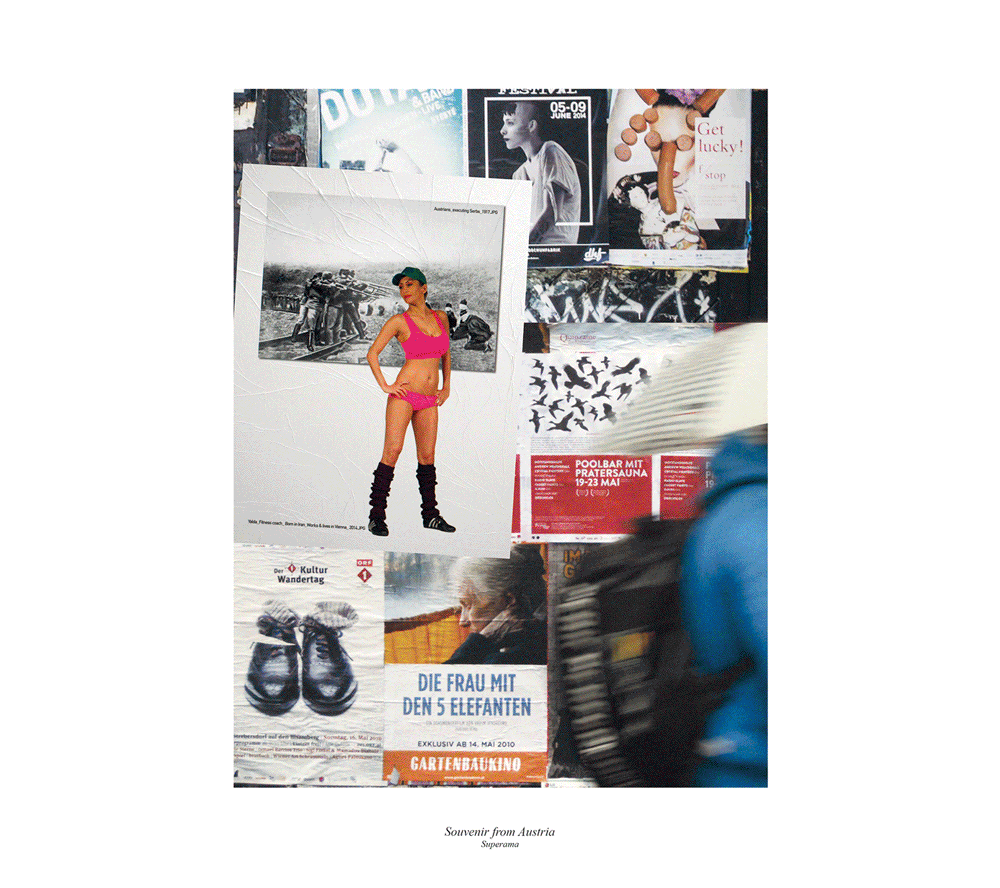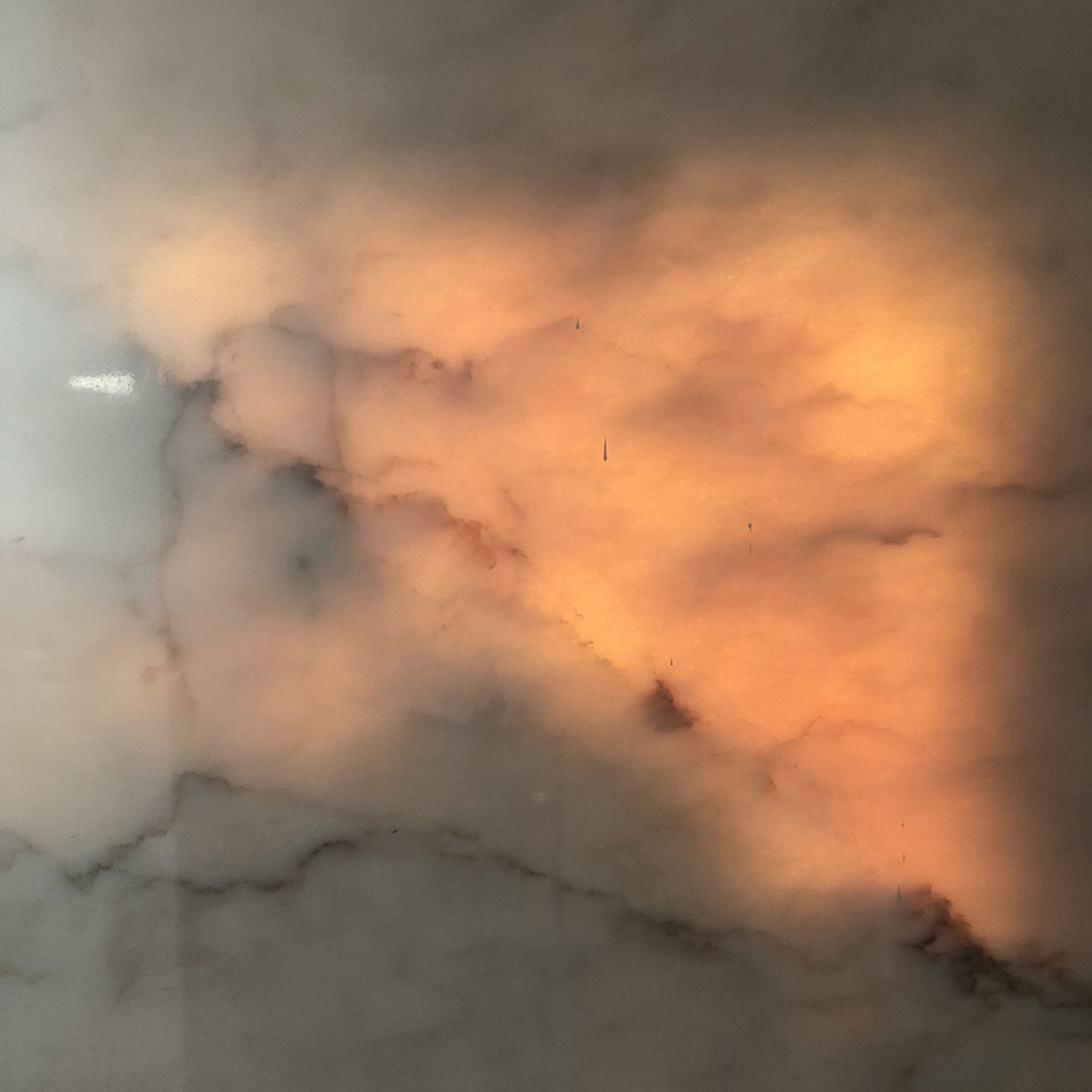Souvenirs from Europe
GHOST
Starting in 2013, the Souvenirs from Europe project is a series of 21 posters designed by artists (photographers, designers, performers, visual artists) who live and work in Europe. They were asked to create a political souvenir of 'Our time', or to choose a ‘object of protest’ (just like there were protest songs in the 1960-70) to portray their country under the political (and financial) crisis that runs through the European project. The end result of the project took the form of a portable exhibition that was proposed and sent to art spaces (museums, galleries, theatres, festivals, bookstores) all over Europe.
Souvenir(s) from Europe
During a conversation we had about the project, we realized that while one of us used the title ‘Souvenir from Europe’ (in the singular), the other understood it as ‘Souvenirs from Europe’ (in the plural). This difference placed the accent on two distinct approaches, not only to the concept of 'souvenir', but also to the very problem of the European project: how to join the differences?
The 'souvenir' is that one object that we collect as a memory when we visit a city, a country or a locality; it symbolically embodies the experience of this visit in the form of a memory helper or a touristic fetish. We bring an Eiffel Tower from Paris, a Manneke Pis from Brussels and a leaning tower from Pisa. But what 'souvenir', what memento, could we bring from Europe? If we could think of Europe as a singular entity which would be this symbolic object? Around which elements would we articulate our sense of belonging to this territory?
If by 'souvenirs' we understand the survival, in our memory, of feelings, impressions, ideas and past events, so our mementos ('souvenirs') of Europe inscribe themselves in a timeline. A chronology of desire for some (euro-optimists and europhiles) or a chronology of fear and rejection for others (Eurosceptic or anti-European). In the 1980s, 1990s or 2000s, the images we had of what would become Europe are becoming today's memories ('souvenirs') of Europe. Europe was a project fed by idealism and necessity, with immense human and technological resources, with a potential capable of performing a unique project of political, social, cultural and economic emancipation, one that was almost infallible in theory. It is this image of Europe that is in crisis today. An image that has become anachronistic.
The mementos ('souvenirs') proposed in this series are statements. Taking into account the situation of crisis that presently characterizes the European political project, the mementos ('souvenirs') chosen/created by the artists identify certain symptoms of that crisis. They are to be seen in the relationship between this actuality and what we had imagined that Europe could be one day...
Today, we know that there is no reason to believe in the inevitability and the infallibility of the European project or to believe that this dynamic can again be found 'as if nothing had happened' in recent years. The Greek crisis marked a rupture. The conditions currently required by the European Central Bank, the European Commission or by the governments of certain countries at the expense of citizens of other countries have disastrous repercussions. To impose Europe – what Europe? – following a vertical layout from top to bottom – or North to South – is disastrous. The success of the European project depends not only on the ability of the elites to technically solve banking or institutional crises, but also on the willingness of citizens to participate in and support the project of a political, social, economic and cultural European Union. The question which now arises is whether it is possible to build Europe without the people(s) of Europe.
David-Alexandre Guéniot / Patrícia Almeida
Lisbon, August 2014
SOUVENIRS FROM EUROPE, a project from GHOST Edições with:
Agnieszka Rayss, Ali Taptik, Andrej Ðerković, Carlos Spottorno, Claudia Passeri, Eduardo Matos, Galeria de Arte Ambulante, Janez Janša, Jaap Scheeren, Kenneth O’Halloran, Kirill Golovchenko, Léo Favier e Schroeter und Berger, Marina Gadonneix e Guillaume Onimus, Panayiotis Michael, Peter Johansson, Petros Efstathiadis, Seba Kurtis, Superamas, Tehnica Schweiz e Katarina Šević, Unnar Örn Auðarson, Virginie Rebetez.
